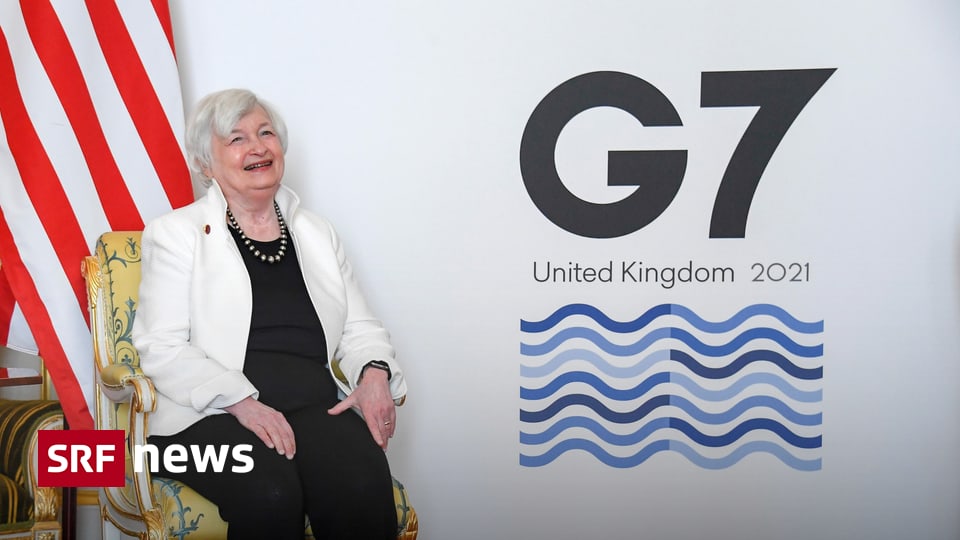The G7 finance ministers agreed on a basic framework for global tax reform. It is not yet certain whether the plans will be implemented. Answers to the deal.
What did the G7 finance ministers agree on? The essence of global tax reform is to establish a global minimum tax for large corporations of at least 15%. This was the first time that a specific amount had been agreed upon. Technically, the minimum tax will apply to earnings abroad. Each government can still set its own rates. However, if the group pays less abroad, the company’s home country may require the difference in the minimum tax.
How did the idea come to you? Multinational corporations have moved larger portions of their profits from patents, software, or IP-based licensing income to tax havens. You pay relatively little taxes – often much less than the taxes of small and medium-sized businesses.
Who loses with previous practice? Many states that impose average or higher taxes on businesses lose revenue. Many emerging countries are also calling for change. Because China, Brazil and India are huge markets where huge sales are made – but taxes are incurred elsewhere.
Legend:
To be glad she pushed the American proposal: US Treasury Secretary Janet Yellen.
Reuters
Who benefits? The deal is a complete success for the United States. The new tax rationale is directed not only against digital companies, the largest of which are located in the USA. In addition, actions are taken only against the largest and most profitable companies. And the EU could benefit, too: according to a study, it should get an additional 50 billion euros through the minimum tax.
and Switzerland? If repair is done, this should lead to tax harmonization. Corporate tax rates are currently set quite differently in the cantons – many have a tax rate of less than 15 percent. The new regulation would reduce tax competition in the cantons, says economics professor Jan Egbert Sturm of the Sunday newspaper.
For economics professor Christoph Schalteger, there is a “certain risk” for those cantons that have positioned themselves competitively. “You will have to raise taxes,” he told SRF News.
According to the State Secretariat for International Finance (SIF), a global minimum tax will hamper innovation and growth. It is assumed that this would lead to losses for Switzerland in terms of profit tax.
Is this the answer to tax justice? There is no doubt. “It is absurd for the G7 to claim to reform a crippled global tax system by imposing minimum taxes around the world comparable to low tax rates in tax havens such as Ireland, Switzerland or Singapore,” says Oxfam’s director-general. international.
Additionally, 15 percent is a compromise. The United States had previously proposed a rate of 21 percent. With this relatively low threshold, there is hope that opponents will not upset the project. Others are less than 15 percent: France has announced that it wants to fight for a higher rate.
What’s Next? The G7 agreement should now continue in the G-20 circle with the most important emerging countries and also become a consensus across Europe. The G20 nations meet in Venice in July. Then it must be clear whether emerging economies will agree to the G7 agreement.

“Tv expert. Hardcore creator. Extreme music fan. Lifelong twitter geek. Certified travel enthusiast. Baconaholic. Pop culture nerd. Reader. Freelance student.”






More Stories
D-AIXT: This is what Lufthansa's first Airbus A350 with the Allegris cabin looks like
USA: It is clear that the economy is losing momentum at the beginning of the year
Chocolate storm in Türkiye – the Swiss are confused